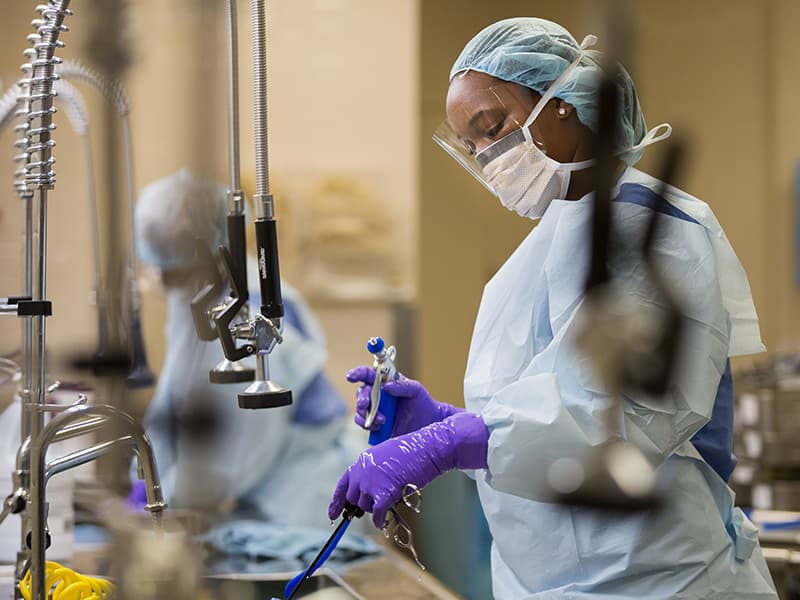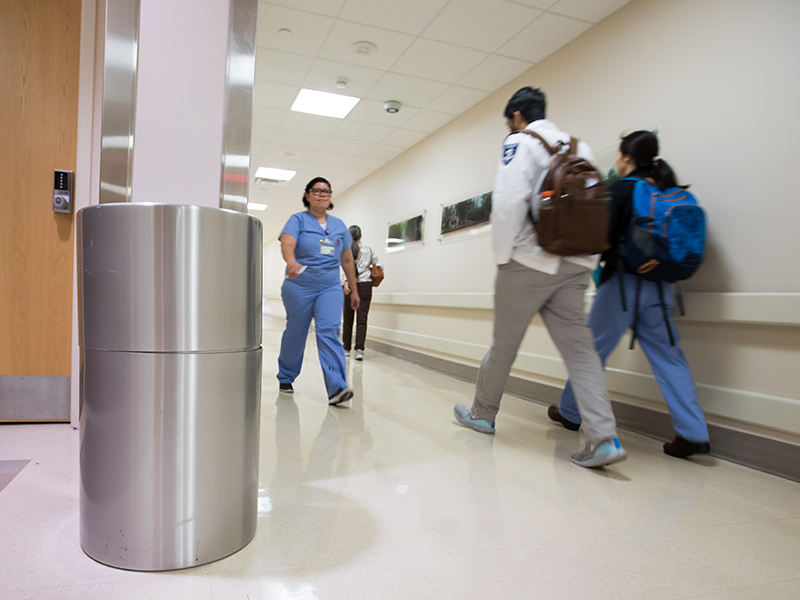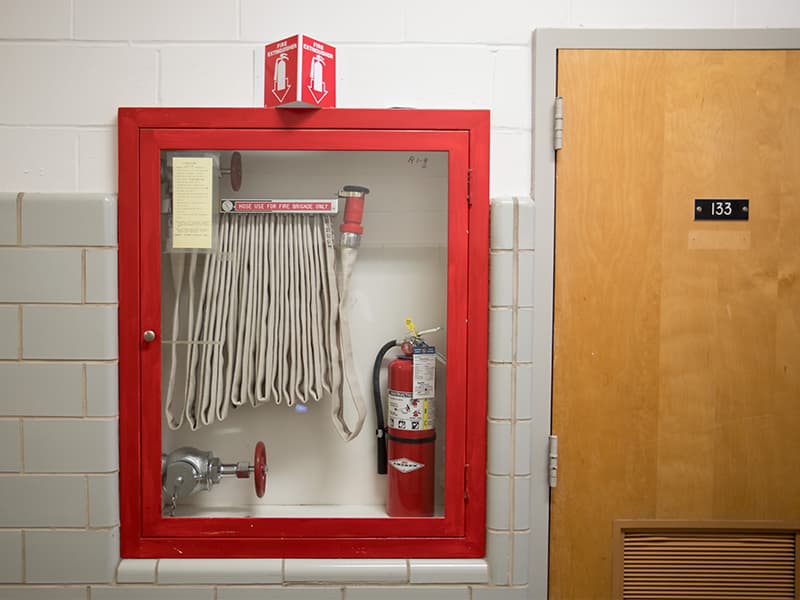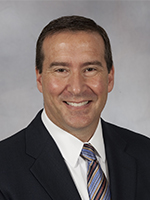Accreditation visit 'Joint' patient safety effort

When a team from The Joint Committee drops by the University of Mississippi Medical Center between now and mid-February, employees should be company-ready – especially because the national accrediting body makes its visits all but a surprise.
Maybe 15 minutes’ notice.
During that four or five days, a team of about seven surveyors from The Joint Commission, or TJC, will scrutinize the Medical Center’s performance in consistently giving all patients in all settings quality, safe care.
They’ll assess how well employees comply with processes important to clinical care and safety– and that ranges from making sure exit lights have all bulbs burning to ensuring a high level of disinfection and sterilization of surgical instruments.
UMMC’s accreditation hangs in the balance.

“There is no excuse for us not to be ready,” Kevin Cook, CEO of the UMMC health system, told a group of managers and other Medical Center leaders who attended an Oct. 27 meeting on TJC compliance and readiness. “This is the test we already know the answers to.”
And no matter the job title or description, everyone at UMMC shares responsibility in the journey toward zero patient harm, achieved through addressing head on the most critical safety and quality challenges.
The Joint Commission is an independent, nonprofit organization that accredits and certifies nearly 21,000 U.S. health care organizations and programs. TJC accreditation is recognized as a symbol of quality that reflects an organization’s commitment to meeting certain performance standards, TJC’s website explains. It means giving all people the safest, highest quality, best value health care across all settings, TJC says.
As part of visit preparations, UMMC conducted two mock surveys using external consultants to assess how well the Medical Center complies with processes crucial to patient care and safety. They found a number of opportunities for improvement, including:
- Monitoring and documenting air pressure in patient rooms where required,
- Staff knowledge of what to do in case of fire, and location of closest fire alarm pull station,
- Corridor clutter,
- High-level disinfection and sterilization, and
- Cleanliness (overflowing trash cans, rusty equipment, torn upholstery, chipped/broken countertops).

“How many of you feel as though your unit is ready right now if TJC shows up tomorrow morning?” Cook asked the crowd at the Oct. 27 meeting. “How many of you know what you need to do to close the gaps, and why are we closing the gaps?

“You know what to do, so go make it happen,” Cook told them. “Take ownership of your area, and make it happen.”
The federal Centers for Medicare and Medicaid, CMS for short, require all hospitals to meet minimum criteria for ensuring patient safety. “You must meet these standards in order to be paid” for Medicare and Medicaid patients, said Judy Flynt, the Medical Center’s director of accreditation.
“We have to prove we meet or exceed the CMS standards,” she said. And if TJC has a “finding” of non-compliance, she said, “we have a very short time frame to correct them,” sometimes as little as 30 days.
TJC last surveyed the Medical Center in February 2015. Using a different scoring methodology since last time, they’ll be reviewing the campus for compliance with hundreds of standards emanating from key focus areas, Flynt said.
“You will see a significant increase in the number of their findings, because it’s a ‘see one, cite one’ process,” Flynt said. “They’ll look at the likelihood of an issue to cause harm versus the scope of the non-compliance. How many different places did they find it? In just one area? Every time they looked?”
Senior Safety Officer Donnie Denton and his inspection team scrutinize a campus that blankets four million square feet. “Between 15,000 and 20,000 people are here every day. We are responsible for every one of these individuals,” he said.
“The fact of how safe an environment is probably never crosses their minds until the fire alarm goes off,” Denton said. “It’s a big responsibility to keep everyone safe, but we have the means and capability of providing a safe environment.”
That requires constant observation, and everyone plays a role. “We don’t have enough eyes and hands to address all of the issues,” he said. “We want to make sure you understand what the issues are, and as you see them, you address them. There are times when you need to say, ‘That doesn’t look right, and I need to notify someone. Let’s get this taken care of.’’’
Kendall Taylor, a registered nurse in the Adult Emergency Department, is among employees who are ready for the team to arrive.

“TJC visiting is important, because they confirm that each unit is following the correct and most efficient practices and standards to ensure the best quality patient care hospital-wide,” Taylor said.
When TJC’s surveyors make their inspection, “most of their work will be attention to little details. So, you need to pay attention to the little details,” Cook said.
“Look at the fire extinguishers and the doors, at the ceiling tiles and the oxygen cylinders. Sweep your unit today as if TJC was walking along the unit in the next five minutes,” Cook said. “If you need help closing the gap, the resources are available to you to make it happen.”
The survey team likely will visit on a Monday or a Tuesday, and sooner than later. Some of their visits in Texas and Florida have been postponed due to the recent hurricanes, bumping up other hospitals on their schedules.
Flynt is checking TJC’s website daily. Visit notifications are posted at exactly 7:30 a.m. TJC’s team will be in the hospital lobby at about 7:45 a.m. “Before they make it back to the airport, their findings will have made their way to CMS,” she said.
“This accreditation recognizes our commitment to quality and safety, but that’s just a minimum standard,” Flynt said. “Our reputation is at stake. Our accreditation has a huge impact on all of our teaching programs.”
The Medical Center’s journey to high reliability in patient care and safety doesn’t pause when the accreditation team packs up.
“We don’t do this just because TJC is coming,” Flynt said. “This is about our standard of care and doing the right thing for our patients all the time.”

